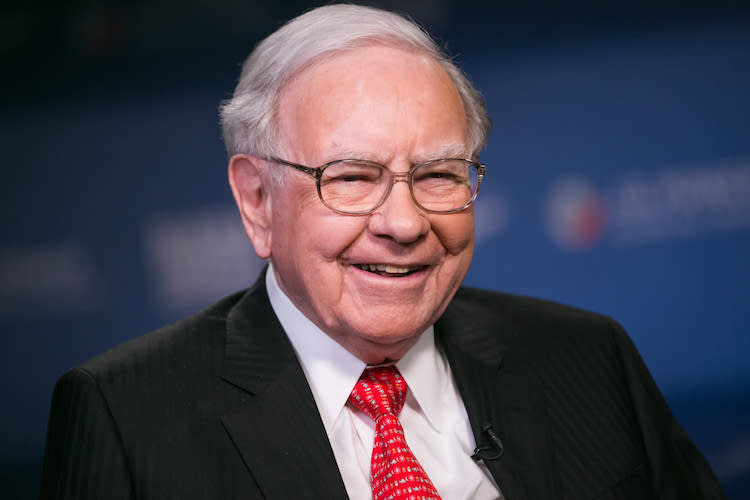5 Warren Buffett Quotes and What They Mean For CMOs

A few years ago I penned What Albert Einstein Can Teach A CMO in which I shared seven of the master’s quotes and translated them into what they mean for chief marketing officers. Later, Oracle, my employer at the time, repurposed my post into 7 Albert Einstein quotes and what they mean for CMOs into a post on their blog and it ended up being one of the most popular posts they’d ever seen.
So I got that going for me, which is nice.
Today, in the spirit of sharing wisdom from those smarter than I — AKA the entire world, basically — I give you five quotes from, speaking of Oracle, the Oracle of Omaha himself along with a translation into what each means for CMOs.
1. “Should you find yourself in a chronically leaking boat, energy devoted to changing vessels is likely to be more productive than energy devoted to patching leaks.”
The second I read this quote my mind immediately went to self-preservation. Look, we all know CMOs have the shortest shelf life in the entire c-suite. So, if you’re a CMO and you’ve been at your role long enough to know the “leaks” are beyond patching at this point PLUS you know you’re time is limited anyway — oftentimes through no fault of your own — it’s time to “jump ship” and change vessels for sure.
2. “Price is what you pay. Value is what you get.”
Can we just be real here for one second? Marketers, I hate to tell you this but consumers and buyers are MUCH smarter and savvier than you give them credit for. They know damn well you are trying to sell them something and they know damn well to get that something there is a price to pay. Got it? Ok, now that you understand that, your job is to convey the value your (insert product, service here) will deliver to them. Flip the quote around from their POV: Price is what I pay. Value is what I want.
3. “Risk comes from not knowing what you are doing.”
Assuming you’re a CMO and have a team reporting to you on this one. This one is about delegation and acknowledgment. Delegating to those around you; trusting them to know more than you do on a given task, topic, or what-have-you. And acknowledging that you don’t know everything but that that’s ok because no one expects you to know EVERYTHING, even at your level. How many companies have failed due to ego? Think about it.
4. “In the business world, the rearview mirror is always clearer than the windshield.”
This is true for life as well, of course. But in the context of the world of business, the past is always clearer because the past are nothing but facts. What campaign worked or didn’t work? How did a given tactic go over? How did your customers respond to these? These are not conjecture, they are stone-cold facts whereas the future is laden with streets of uncertainty. Of course, you want to use past performance to base future outcomes on but there are no guarantees.
5. “The business schools reward difficult complex behavior more than simple behavior, but simple behavior is more effective.”
When I first read this quote, I let out multiple screams at the top of my lungs. The neighbors complained about the noise but we’re good now. The reason for my cacophony of caterwauls? Because I am the world’s largest proponent of keeping things simple. Humans in general tend to over-complicate a lot of things in our lives. But marketers take it to a whole new level. Let’s take research as one example. If research shows a clear and undeniable trend among your customer base, that should be enough for you as a marketer to react accordingly, yes? Then why do so many in marketing land, when reviewing such research, want to overthink and over-complicate and second-guess what is staring them right in the face?
Ok, so that’s five of my favorite Warren Buffet quotes and their meaning for CMOs.
Now, share some with me. Enlighten me, please.